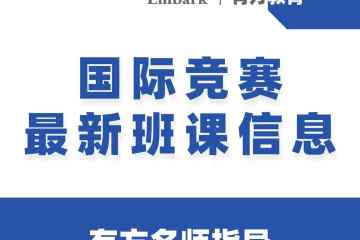剑桥大学官方面试技巧大公开

英国读大学哪家强?虽然各有各的心头爱,但大多数人还是赞同牛津和剑桥当属最强的两所。近年来,因为申请人数每年递增,牛津剑桥的筛选也变得越来越严格,只有分数高也不能保证你能被录取,还有面试这一难关。
剑桥大学官方出品——入学面试技巧大公开!人文社科专业注重个人陈述和课外经验?理工科更偏向思维发散?看学霸们如何应对!
中英全文
Interviewer: The Cambridge interview process is very important to see. This is one part of the assessment, so we look at many things about each candidate in our minds when we're doing an interview.
面试官:剑桥入学的面试过程,很显然是非常重要的这是考核的一部分。所以我们会考察每个候选者的很多方面。当我们面试的时候,在我们心里。
The sorts of things we're thinking about are whether or not the person in front of us has the right kind of background knowledge needed for our courses, whether we think they'd be successful in our kind of teaching environment, and to put it in a nutshell really, can they think?
会考核的因素有:坐在我们面前的学生是否有和我们课程相匹配的学术背景?在我们的教学环境下,他们是否能够成材成功?简单地说,他们会思考吗?
Hello!
你好!
Interviewee: Hi!
面试者:你好!
Interviewer: Take a seat, hiya. Hi, I'm Nick.
面试官:请坐。嗨,我是Nick。
Interviewee: Hi, I'm Natalie. Nice to meet you.
面试者:你好,我是Natalie,很高兴见到你们。
Interviewer: Hello, there.
面试官:你也好啊。
And just as we start this interview, I want to give you a bit of an outline of what's going to come next. So we're going to start off with a question from Nick, and then we're going to talk a little bit about some unseen material.
在我们开始面试之前,我想先简单概述一下,接下来的流程首先会从Nick的问题开始,然后我们会聊一点,可能你之前没学过的知识。
At the end of the interview, there'll be some time for you to ask any questions if you have any, you don't have to have any, if there's anything that we say that doesn't make sense so that you'd like us to repeat or rephrase, please do just say, we're more than happy to do that.
面试的结尾,我们会给你时间,解答你提出的问题。当然,如果没有也不一定非要问。如果我们哪里没说清楚,你想让我们重述或者复述,请一定要大胆说,我们很乐意效劳。
Interviewee: Okay.
面试者:好的,清楚。
Interviewer: And we will make notes, as we go along as well, please don't be threatened by that, okay? You shouldn't be surprised to find those interviewing you are taking notes during the interviews.
面试官:整个面试,我们都会记笔记,所以不要惊慌,可以吧?在面试过程中,面试官会始终做着笔记,你不必感到惊讶。
This is because they need to remind themselves of topics which have been covered both during and in subsequent discussion of the interview performance.
因为他们的此举是为了提醒自己聊过了哪些话题包括你面试过程中的表现,以及之后的讨论。
What we're expecting out of students in those interviews is firstly that they are listening really carefully to what they're being asked and we're interested to find out how people are thinking.
我们希望在面试中,看到学生首先对我们提出的问题保持高度集中。我们非常关注学生是如何进行思考的。
So in their responses, if they can take us through their own thought processes. Then that's great because it means that we can see how they're exploring those ideas.
所以如果他们的答案可以让我们看到整个思维过程那就再好不过了。因为这意味着,我们看到了你在发散思维。
We'll start off and have it by talking to you about the essays that you've sent in, and then we'll move on to one or two other topics that come out of your personal statement.
首先,我们要从你上交的这些论文开始聊起,然后我们再讨论一下,你个人陈述中的一两点。
As the interview goes on, in one of your essays, you were talking about the theory of functionalism that things are kind of designed for purpose.
随着面试接下来的进行,在你的一篇论文中,你分析了结构功能主义理论。就是说,各种事情都是有目的性的。
And in your archeological or anthropological reading, have you come across that as an idea? As a sort of a scholar thought.
在你阅读考古学或者人类学的资料时,你有得出这种结论吗?那种学术性的思考。
Interviewee: Yeah, I've definitely come across that idea, comes across a lot actually. And there's definitely inter linkage between sociology and especially social anthropology, and the idea like society works as a body through the organs.
面试者:当然我的确得出过这种想法。而且还不少社会学和社会人类学之间肯定存在着内在的联系。比如社会就像一个通过器官运作的身体。
It's not necessarily something I believe in. I don't think the problem with these kind of broad theories that is, they generalize too much I think and there are too many exceptions.
当然这并不一定是我的信仰。我认为这种很广泛的理论并不能一概而论。
Interviewer: In the arts and social sciences, we will often make use of a student's UCAS personal statement, and their supplementary questionnaire that they fill in specifically for Cambridge.
因为也会有很多例外情况在社科学科中,我们通常会考量学生申请的个人陈述。浏览你的个人陈述,并查看他们回答提交的额外的剑桥大学问卷。
We're not evaluating the quality of their writing in the statement. We're asking them to say some more about things they have told us about themselves about their extracurricular academic engagement and about their interest in the subject that they want to read.
个人陈述的书写水平并不是我们考察的因素。我们会请他们聊一聊,更多关于他们自己的事情。比如课外学术交流、感兴趣的课程等。
And I was interested in your personal statement you mention archaeology, and that you've been doing some things in that field after you've finished A levels. Can you tell me a little bit about what you've been doing? And how you've been exploring that that area?
我对你个人陈述中所提及的考古学很感兴趣。所以读完高中,你有做了一些与其相关的事情。能和我们说一说你都做了些什么吗?你又是怎么探索这一领域的?
Interviewee: I think with archaeology. I have been trying to build up a board...like a basic kind of foundation knowledge, because I've never studied it.
面试者:我认为在考古学方面,我有试图建立起对考古学的基本知识储备体系。毕竟我从来没有真正学过。
My interest started and in programs about Egyptology and seeing exhibitions of that sort in places like the British Museum, that kind of sparked my interest, so I wanted to try and understand that more, and started reading introductory book.
我的兴趣是从看埃及考古相关的节目,以及在大英博物馆看相关展览开始的。这极大地激发了我的兴趣,因此我想尝试着了解学习更多,所以就开始读起了入门书籍。
Interviewer: For a technical interview, like Natural Sciences or engineering or mathematics then what we're looking for is how teachable they are. We're looking at how interested in the material they are, how they can take an idea and develop that, even if it's something that they perhaps haven't necessarily seen before.
面试官:对于一些专业性强的面试,比如自然科学、工程或者数学。我们要找的是可教之才,我们会评估他们对学科的兴趣程度,他们怎样对问题进行思考和发散。即使是一些他们之前未必接触过的问题。
So it's going to start by sketching a function and the function that I'm going to write down you've probably not seen before. I'm fairly sure that you all seen the pieces of that function.
所以我们先给你一个函数方程,可能我要写的这个方程,你之前没见过自然科学(物理),但我确定,你应该会对部分有所了解。
Interviewee: OK.
面试者:好的。
Interviewer: So if I write down, function is y is equal to sin(X) divided by X. What I would like you to do, is sketch the behaviour of that function, between -2π and 2π, and so if you can sketch some axes for me and give that a go.
面试官:所以这个式子写下来就是y等于sin(X) 除以x。我们想请你,在-2π到2π之间,描绘出这个函数图形。你可以先从画一个坐标轴开始。
Interviewee: First of all I'm going to start and get some of the main points that I need to work out. So I'm going to start with X is equal to 0.
面试者:首先,我要开始求一些我需要的关键值。所以假设代入X=0。
Interviewer: Okay, so if I can just stop you there for a second, because X is equal to 0 is a little bit tricky. so choosing some points is a good idea absolutely. But we might just come back to that one, so are there any other points that you know the values of?
面试官:好的,我想先打断你一下。因为假设除数X=0,会带来一些小问题。假设一些关键值,这个想法很好,但回到开始,可不可以假设其他一些值进行推算呢?
Interviewee: π is a fairly good one. sin(π)=0and so sin of π will be 0, and so 0 divided by π is 0.
面试者:π就挺好,所以当0/π=0。
Interviewer: Mm-hmm excellent.
面试官:很好。
Even when she was getting to the stage of being uncertain about what to draw and you could see the hesitation, she would nevertheless draw something. And that gave you the opportunity to say well yes, that's sort of in the right direction, you need to change this a little bit.
即使当她到了不确定怎么画图的阶段,你能看到她的犹豫,然后她还是动手开始画了。这就给了你自己一个机会,大方向对了,就是需要改些细节。
Interviewee: So that would be...
面试者:所以结果是...
Interviewer: Yeah, have a scribble if it helps. What was this one?
面试官:需要的话,可以打个草稿。这边是多少?
Interviewee: It was 2/3.
面试者:2/3
Interviewer: Mm-hmm. What's this one?
面试官:很好。这边呢?
Interviewee: That's 2/3 of π, oh yeah. So that'll be more like 2/9.
面试者:2/3π,所以结果可能是2/9。
Interviewer: Yeah, good.
面试官:很好。
Interviewee: Get to be more smaller.
面试者:要画小一点。
Interviewer: If candidates are very hesitant and very unwilling to write things down or say things, it's very difficult for us to help them. So keeping the dialogue going is very very important, and I think Hannah was very good at that.
面试官:如果面试者犹豫不定,不愿意写或者说出来。我们就很难帮到他们,所以保持对话的畅通很关键。我觉得 Hannah这一点做的非常好。
The questions we ask in interview are designed to push the candidates and to make them think hard, what you hope to do is to start with something which they will be able to answer, but to get progressively more difficult as you go through the problem.
面试中我们设计的问题都是推动候选学生,引发其认真思考的。我们希望从一些他们能够回答出的问题开始,随着问题的深入,逐渐再加大难度。
And often the candidate who thinks they haven't done very well will have done well because they'll have actually progressed further through the problem.
通常认为自己表现不好的学生其实都做得不错,因为他们已经聊到了更深入的问题,期盼具有挑战性的讨论。
We would expect candidates by the end of the interview to feel that there was something that they haven't been able to answer.
我们想看到,在面试的结尾面试者能意识到,有些问题他们是没办法回答的。
Starting with something that hopefully we've already covered in something you should know what role do bases actually play in the hereditary nature of DNA?
首先,从我们希望你已经有所涉猎的内容开始。碱基在DNA的遗传性质中究竟起着什么作用?
Interviewee: So a triplet code, so three bases together code for one amino acid. And then different combinations of those codons in DNA build up a chain of amino acids and code for proteins.
面试者:三连体密码。所以三个碱基转换为对应的一个氨基酸,DNA密码子的不同组合,转译为氨基酸组成的链,再形成蛋白质的密码。
Interviewer: Okay, so why is it three, why is it was a codon made up of three bases?
面试官:为什么密码子是由三个碱基组成的?
Interviewee: Because the three bases are needed so they can have different combinations to code for different amino acids. There's only four bases, so if you only had a single base, you would emigrate to code for four, I mean, acids, whereas we have a triplet code which goes for twenty different amino acids.
面试者:因为需要三个碱基。可以有不同组合来组成不同的氨基酸。组成密码子的碱基共有四种。假设仅有一个碱基就能组合成四种酸,而我们有一个三连体密码,可用于20种不同的氨基酸。
Interviewer: Is it 20? How many combinations can you have with?
面试官:是20种?你能有几种组合方式呢?
Interviewee: With 3. I'll draw something down.
面试者:3种,我画出来吧。
Interviewer: So Oliver gave a very positive interview actually, I think he answered the questions very well. What I particularly liked was that, he didn't give up, he kept on trying to work out answers, and he was listening to the information that were giving him.
面试官:Oliver的面试就非常成功,他问题回答的很好。我最喜欢他的一点,就是他不轻言放弃,一直想着怎么样得出答案,并且认真地聆听着我们给他的信息。
You'd see flashes every so often. He goes “of course, that's that I've connected it together.” That's exactly the kind of thing that I'd be looking for.
你经常会看到他的闪光点。他会突然灵光一闪:“没错,这样的话 我就都串联起来了。”这就是我寻觅的好品质。
Well let's think about this. If you have one, I mean, one base sorry, you can obviously code as you said, four different amino acids right? So you have ATGZ, if now you have two, what's the combination?
好,那我们来想这道题。如果你有一个碱基,很显然你能组出四种不同的氨基酸。对吧?你现在有ATGZ。取两种,会有什么样的组合?
Interviewee: So I've got...12, I would have?
面试者:我会有...12种?
Interviewer: A bit more than 12.
面试官:多于12种
Interviewee: I'd have 8...yeah you're right, I could have 16.
面试者:我会有8...你说得对,会有16种。
Interviewer: So when you have a triplet, what can you get?
面试官:如果是三连体密码呢?结果是什么?
Interviewee: So I've now got 64.
面试者:会有64种。
Interviewer: So can 64 code for 20?
面试官:20种氨基酸有64种组合?
Interviewee: It could code for 64 different amino acids.
面试者:会组合成64种不同的氨基酸。
Interviewer: It could do up to 64 potentially, couldn't it?
面试官:可能就会到64种,对吧?
Interviewee: Yeah.
面试者:是的。
Interviewer: It can be quite difficult I think, when you come into an interview situation to remember that we want you to do well. If you can take a moment to gather your thoughts, and make sure that you understand the question that's being asked of you, and what you want to say in response to that, you look as though, you've kind of got a sense of what it is that you're trying to say in response to the questions.
面试官:走到面试这一步,通常都是很困难的。要记住,我们想看到你发挥出色,所以如果你能用些时间,整理一下自己的想法。确保弄清楚我们的提问,以及准备好自己的答案,让自己看上去显得信心十足,且已准备充分来回答问题。
And I think Natalie handled that really well, she took a few moments to reflect, and she thought about the kinds of things that she was interested in, without ever dodging the question, she always talked about relevant material, but she did it in a way that I think allowed her to express her own interest in the subject.
我觉得Natalie这一点就做得很好。她花了一阵子来思考,想了想她感兴趣的一些方面,没有避开问题。她总是答有所问,但同时,她回答的方式又给了她展示自己对学科兴趣的机会。
This shows you total fertility rates by NUTS 2 region in Europe, and it's average between 2006 and 2008. I just want to start off really by asking you if you could describe the pattern that you see there.
这张图是出生率概况。以欧盟NUTS 2行政区划分的,取得是2006到2008年的平均值。我想要你做的是,来描述一下你看到的图表。
Interviewee: So I can see that in West Europe, the fertility rates are generally high. Well higher, within each country there's a variation.
面试者:我能看到在西欧出生率普遍较高。比其他地方高,在各个国家内出生率也是有差异的。
Interviewer: So why do you think the patterns might look the way they do, particularly in Western Europe which you identified immediately?
面试官:所以你觉得这个图形的分布,尤其是你立即察觉出的西欧规律形成的原因是什么呢?
Interviewee: I'd say cultural factors play quite a big role. So the expectations of how big families could be and also maybe welfare measures also play a role. So the provisions of the state and how that it may encourage or discourage people to bring up families.
面试者:我觉得文化因素是关键之一。当地人对大规模家庭的期待值,同时国家福利也是因素之一。国家的供给或多或少,鼓励或阻止家庭的规模扩大。
Interviewer: I wonder if I could ask you to speculate on, what you think this map of total fertility rates will look like in 20 years time?
面试官:我想请你推测一下在20年后,这张地图的总体出生率是什么走向?
Interviewee: I would say that possibly the fertility rates in the UK and France might decline a little bit and...
面试者:我觉得,很可能英国和法国的出生率或有所下降...
Interviewer: Why that might be?
面试官:为什么呢?
Interviewee: That might be to do with the changing role of women, so their expectations of their careers. And I suppose it is quite difficult to say because there are so many factors that sort of come into it that you can't really speculate that much until it happens.
面试者:可能是女性身份的转换她们对个人事业的追求。但我觉得这个很难讲,太多因素需要考虑了。到没发生之前,谁也不能推测出太多。
Interviewer: Okay, it's a big complicated picture. Thank you very much.
面试官:这确实很大,很复杂。谢谢你。
Interviewee: Thanks.
面试者:谢谢。
Interviewer: We run a holistic admissions process. So we try and collect as much information as we can about a candidate a lot of that comes from the paper records. So a record of examinations for example, the personal statement, the reference and the school.
面试官:我们的录取过程是非常全面的,我们尽可能地收集全每位候选人的资料信息。大多数的资料来自于纸质记录,比如说成绩单、个人陈述、推荐信和毕业证。
The interview is just one component of that whole process. It's not the bill on the end door, it can tell us important information about our candidate, but it's not necessarily the most important factor in our considerations.
面试只是整个过程的其中之一。面试只是考核的一部分,不是面试没发挥好,剑桥就向你关上大门。但面试确实能让我们更好地了解候选人,但它不一定是我们考核中最重要的因素。
The single piece of advice I'd give any student coming for interview is to listen carefully to the questions that they're being asked. If you don't understand a word, ask for clarification.
我要给即将参加面试的学生的建议是,认真听取你们被问到的问题。如果有不清楚的地方,大胆地寻求解释。
Be yourself as much as possible, we are assessing you to see whether we can teach you effectively. So the more you are like you in your interview, the better.
永远做你自己,我们考核的是,是否能教你成材。所以你的面试表现越真实,效果越好。


